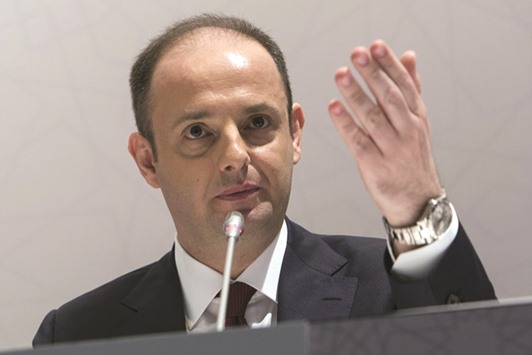Turkey’s central bank governor pledged yesterday to do whatever is needed to ensure financial stability after a failed coup and criticised Standard & Poor’s “hasty” move to cut the country’s credit rating further into junk territory.
At a news conference to present the central bank’s quarterly inflation report, Murat Cetinkaya said it was too early to assess the impact of the abortive putsch on the Turkish economy.
But he took pains to emphasise that longstanding plans to move to a single interest rate were on track.
“To be able to understand the impact of the incident we have recently experienced in Turkey... a sufficient amount of time needs to have passed and a sufficient amount of data and observations need to be collected,” Cetinkaya said.
“We think it is still too early for this. I want to say that we, as the central bank, find the decision recently taken by a rating agency as hasty.”
S&P cut Turkey’s foreign currency credit rating to BB from BB+ last week and changed the rating outlook to negative, saying the political landscape had further fragmented since a faction in the military tried to overthrow the government on July 15.
The coup crumbled as large numbers of Turks responded to an appeal from President Tayyip Erdogan to rally in support of democracy, but investors have been spooked by the force and scope of the subsequent crackdown.
S&P said political polarisation had further eroded institutional checks and balances in Turkey, a reference to the sweep through suspected coup plotters and their supporters in the judiciary, military, education sector and civil service.
The Turkish lira fell to a record low as the coup and the state of emergency announced afterwards by Erdogan roiled markets but Cetinkaya said the central bank’s promise of unlimited liquidity had calmed volatility.
“The central bank will continue to closely monitor depth of the market and price developments and will take all necessary measures to maintain financial stability if needed,” he said.
While the impact of S&P’s downgrade was limited because it already had a junk rating on Turkey’s sovereign debt, investors are concerned that Moody’s and Fitch could cut their ratings to below investment grade as soon as next month.
Cetinkaya said on Tuesday that the central bank does not expect any credit rating moves in August.
He also stressed that the bank’s plan for policy “simplification” — its move to single interest rate regime, from multiple interest rates now — is still on track.
The bank aims to provide funding and a single rate, Cetinkaya, although the timing and pace of the process will depend on the outlook for inflation and market stability.
“We still believe that the normalisation of the monetary policy could take longer than expected because of mounting inflationary pressure in the short term,” said Ozgur Altug, chief economist at BGC Partners.
Cetinkaya said the bank’s mid-point forecast for year-end inflation was 7.5% for 2016 and 6% for 2017, both unchanged from the previous report in April.

u201cTo be able to understand the impact of the incident we have recently experienced in Turkey... a sufficient amount of time needs to have passed and a sufficient amount of data and observations need to be collected,u201d says Cetinkaya.
